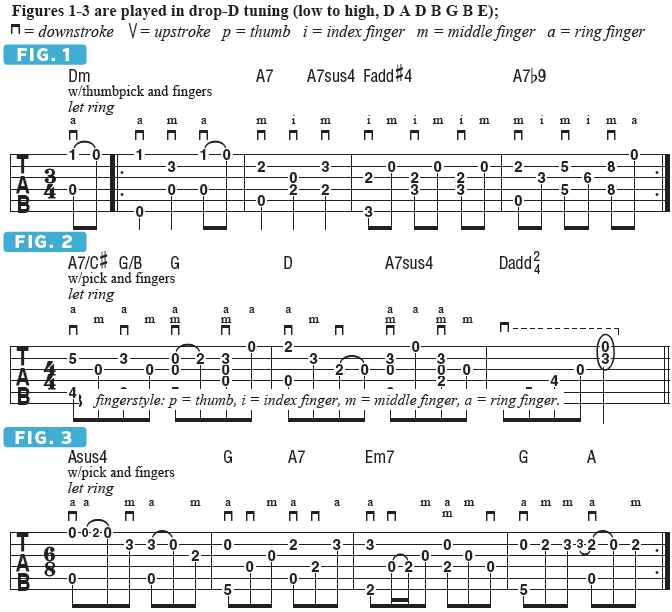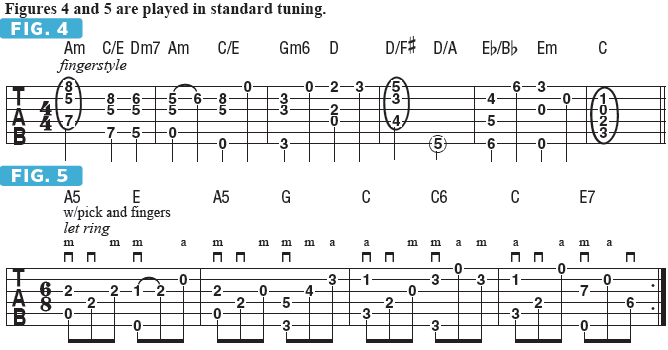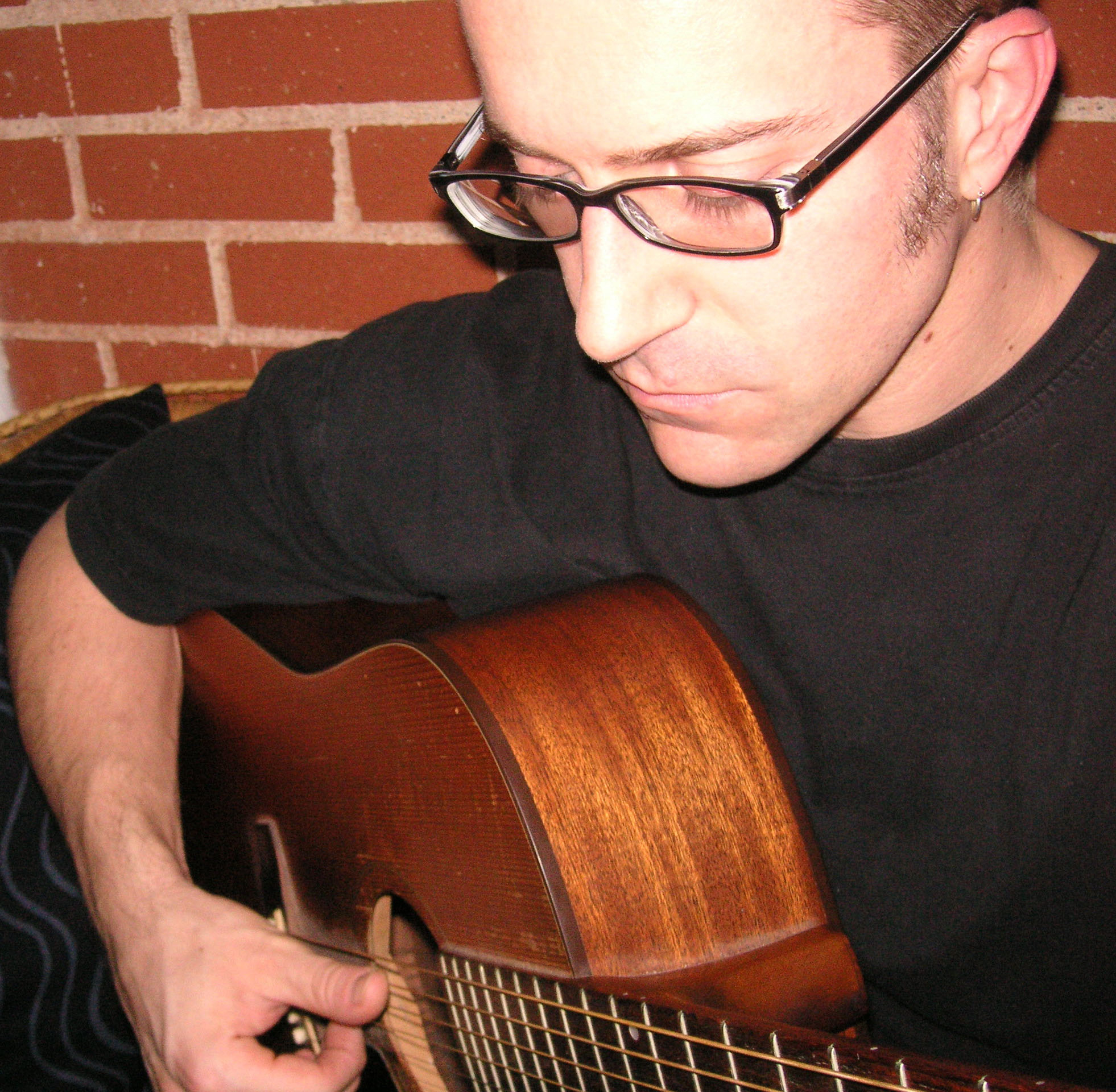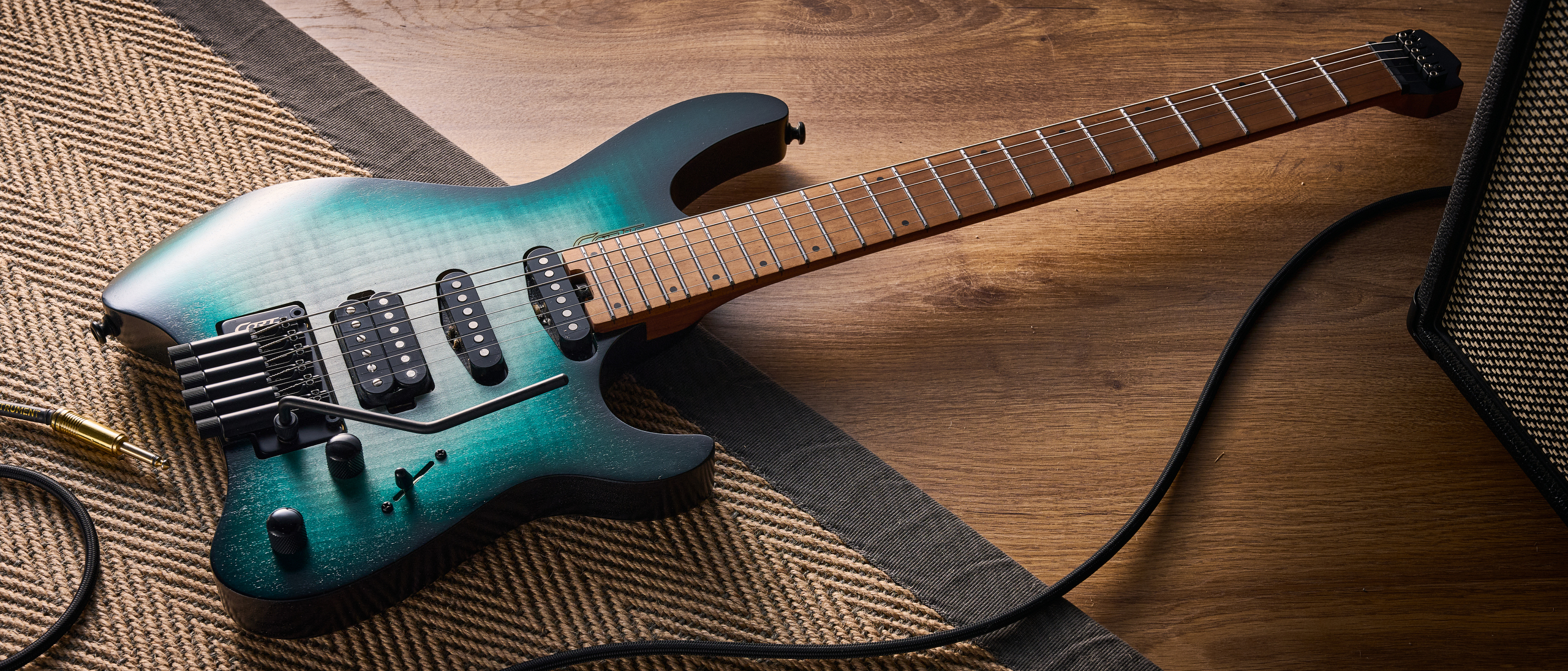The Hybrid-Picked, Drop-D Delights of Richard Thompson
All the latest guitar news, interviews, lessons, reviews, deals and more, direct to your inbox!
You are now subscribed
Your newsletter sign-up was successful

For an artist with such a vast body of work, Richard Thompson has spent much of his musical life under the radar. A founding member of Fairport Convention (he penned their anthem “Meet on the Ledge”) and the folk-rock duo Richard and Linda Thompson, he is also a critically acclaimed solo artist whose songs have been covered by numerous artists, including Robert Plant, Elvis Costello, David Byrne and R.E.M.
Thompson plays Martin, Lowden and Farrington acoustic guitars, and as we’ll see in this lesson, he favors hybrid picking (“pick-and-fingers” technique) and often opts for drop-D tuning (lower your sixth string’s pitch one whole step, to D). Today, with a career spanning almost 50 years, Thompson is still recording and touring, and is busier than ever. Let’s examine some of the things that make this picker tick.
After four influential years (1967–’71) with Fairport Convention, Thompson went solo, issuing Henry the Human Fly in 1972. The album featured Fairport vocalists Ashley Hutchings and Sandy Denny, along with Linda Peters, whom Thompson wed later that year. As Richard and Linda Thompson, the duo collaborated on a host of albums before breaking up romantically and professionally in 1982. Among their celebrated works is “The Sun Never Shines on the Poor,” from 1975’s Hokey Pokey, which Thompson thumb-pickson a drop-D acoustic capo-ed at the secondfret (we’ll forego the capo in this lesson), similar to FIGURE 1.
FIGURE 2 is reminiscent of the couple’s “Dimming of the Day,” from 1975’s Pour Down Like Silver, a fan favorite that has been covered by the likes of Bonnie Raitt, David Gilmour and Alison Krauss & Union Station. Thompson hybrid picks this drop-D gem, played with a capo at the first fret on the studio release.
Starting in the late Eighties, Thompson’s solo career blossomed with a string of acclaimed releases for Capitol Records, including Amnesia, Rumor and Sigh and Mirror Blue. FIGURE 3 is informed by “Beeswing,” from Mirror Blue. For full Celtic effect, emphasize the speedy hammered-on/pulled-off grace notes in bars 1 and 4.

In the new millennium, Thompson moved away from major labels, opting for a personal way to present his music. In 2005, he self-funded the album Front Parlour Ballads. Recorded in his garage on his laptop computer, this intimate album excelled on the indie charts, owing much to unique guitar vocal pieces like “How Does Your Garden Grow?” which inspires FIGURE 4. Thompson continues to release albums of new, original music. He’s also responsible for 1000 Years of Popular Music, a “covers” collection of tunes dating back as far as the title suggests. Among its offerings is his version ofthe Britney Spears hit “Oops!...I Did It Again,” into which Thompson injects a medieval flavored instrumental interlude, similar to FIGURE 5.

All the latest guitar news, interviews, lessons, reviews, deals and more, direct to your inbox!
A singer-songwriter/multi-instrumentalist/film composer, Musician's Institute instructor, and author of 50+ transcription/instructional books, Dale Turner is also Guitar World's "Hole Notes"/"Acoustic Nation" columnist, and the former West Coast Editor of Guitar One magazine. Some of Dale’s old, weird, rare, and/or exotic instruments are featured in his score for WEEDS, the first animated short completed within the Filmmakers Co-op at Disney Feature Animation. His most recent CD, Mannerisms Magnified, was praised by Guitar Player magazine for its "Smart pop tunes that are crammed with interesting guitar parts and tones ... Like what the Beach Boys might do if they were on an acid trip that was on the verge of getting out of control. Yeah!"

